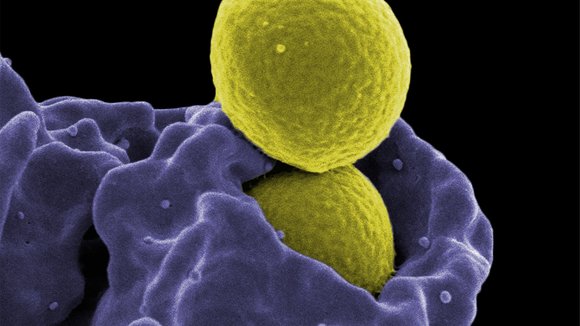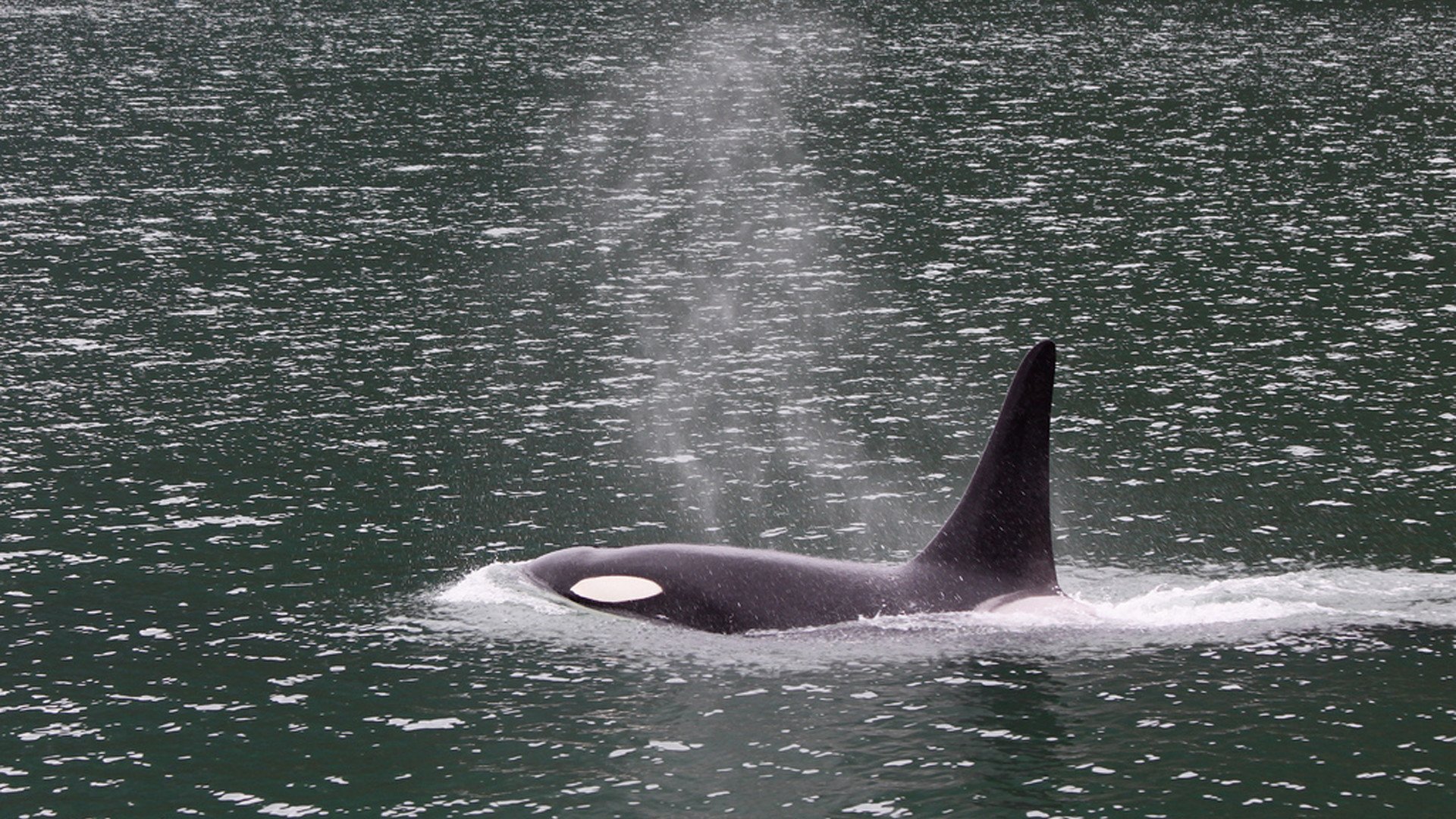Blowhole
American researchers followed a population of orcas in the waters of Washington state. In order to investigate what microbes live in the breath of the orcas, the researchers developed a special method. At the moment that the orcas come to the surface to draw breath, they first blow a large amount of air out through their blowhole. Using an eight-metre pole, the researchers captured the bacteria and fungi in the breath of the whales. A number of petri dishes were fixed to the end of the pole, in which the microbes could then be cultivated. The team has published their findings from this research in the scientific journal Scientific Reports.
Sewage
It turns out that orca breath is teeming with microbes.The researches mostly found harmless bacteria and fungi, but the exhaled air also contained a number of hazardous microbes such as disease-causing Pseudomonas fluorescens and antibiotic-resistant Staphylococcus aureus. ‘They’re recruiting the bacteria in their habitats,’ says Stephen Raverty, main author and veterinary pathologist at the Ministry of Agriculture of British Columbia, at a press release. The living environment of the orcas in this study is subject to human-caused pollution. Here, the marine mammals swim in water into which large quantities of poorly treated sewage are discharged, and this sewage contains many pathogens.

In addition to benign bacteria, multiresistant types were discovered in the breath of orcas as well, such as Staphylococcus aureus.
Serious threat
The presence of the pathogens does not mean that the orcas are actually diseased. But these bacteria can, for instance, cause respiratory infections once the whales’ immune system comes under pressure. And that happens regularly. ‘Unfortunately, these mammals are subject to many stressors, which reduce the competence of their immune system,’ says marine mammal vet and co-author Pete Schroeder. Animals already weakened by pollution, loss of habitat, overfishing and climate change will not survive diseases like this. The research is not only important for orcas, but for humans as well. That is because the identified pathogenic and multiresistant bacteria found in the breath of the orcas are harmful to people, too, if they swim in the polluted water or eat food from the sea.
Source: Nature

